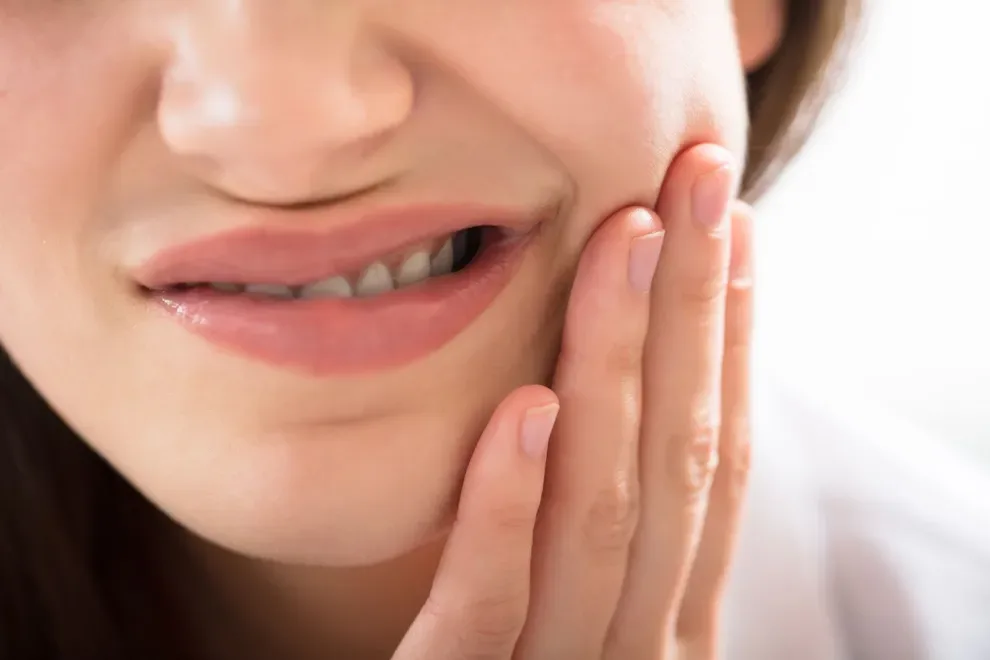Dental Crown Teeth Pain: Causes & Treatment Options

Table of Contents
- Dental Crown Pain Expectations
- Causes
- Treatment Options
- References
The placement of a dental crown can lead to some mild to moderate pain and discomfort in the site, especially around the gums. This is normal and can be treated at home. The pain will generally dissipate within a week or two.
If dental tooth pain following a crown placement is significant, continues beyond a few weeks, or is accompanied by other symptoms, contact your dentist right away. This kind of pain can be caused by several issues that can require additional treatment or even the replacement of your crown.
What to Expect With Dental Crown Tooth Pain
A dental crown often involves prepping the tooth and/or the gums first to remove decay. Often, the dentist will use a local anesthesia to numb the area first.1 When the anesthesia wears off, it is normal to feel some discomfort in the tooth and gums around the tooth where the crown was placed.
Over-the-counter pain medication is often enough to manage discomfort after a crown procedure. The pain should go away completely within a week to two at the most. If you are still experiencing crown pain after two weeks, or the pain is significant, talk to your dentist as there could be something else causing it.
Good dental hygiene can protect you, including brushing twice a day, flossing daily, and seeing a dentist for regular check-ups to prevent dental crown pain.
Causes of Pain
Dental crown tooth pain that is more than just discomfort from the procedure can be caused by a multitude of factors. While the crown serves to protect and strengthen your tooth, it is still prone to issues just like a normal tooth is.
Here are some of the causes of dental crown pain:
If you do not have a root canal before your crown is placed, the nerves are still there. The crown can be placed too close to the pulp chamber and can become abscessed. Signs of an infection include pain, sensitivity, fever, and swelling.
The tooth under the crown is still a live tooth. Cavities are still able to form there, which can cause pain.
Cracks in the tooth or the crown itself can cause some moderate pain and tooth sensitivity.
Gums can recede from gum disease or aggressive brushing, which can lead to the tooth’s root becoming exposed. This can cause pain.
Also called bruxism, this often occurs at night and can put pressure on the crown, leading to headaches, jaw, and tooth pain.
Normally, your crown will adjust to your regular bite with a little time. A crown that does not fit quite right can lead to pain when biting down, headaches, jaw pain, and overall discomfort.
All of these issues need to be addressed by a dental professional.
Treatment Options
The cause of your crown pain will determine your treatment option. For example, if you have tooth decay or an infection, the dentist will need to clean it out. They will often also prescribe antibiotics or medications to help clear it. If you are grinding your teeth at night, your dentist can prescribe a mouthguard to help while you are sleeping.
When your gums recede from your gumline, the cause will determine the treatment. If this is due to brushing too hard, your dentist can show you how to modify this to prevent further damage. When gum disease (gingivitis) and tooth decay are the cause, a procedure called scaling and root planing can clean out the area. Advanced gum recession may need to be treated with a gum graft.
A cracked crown or tooth can often be fixed by bonding the tooth with a composite resin. If it is severely fractured or the crack is too big, or if the crown is not the right fit in your mouth, you will need to have your crown replaced.
